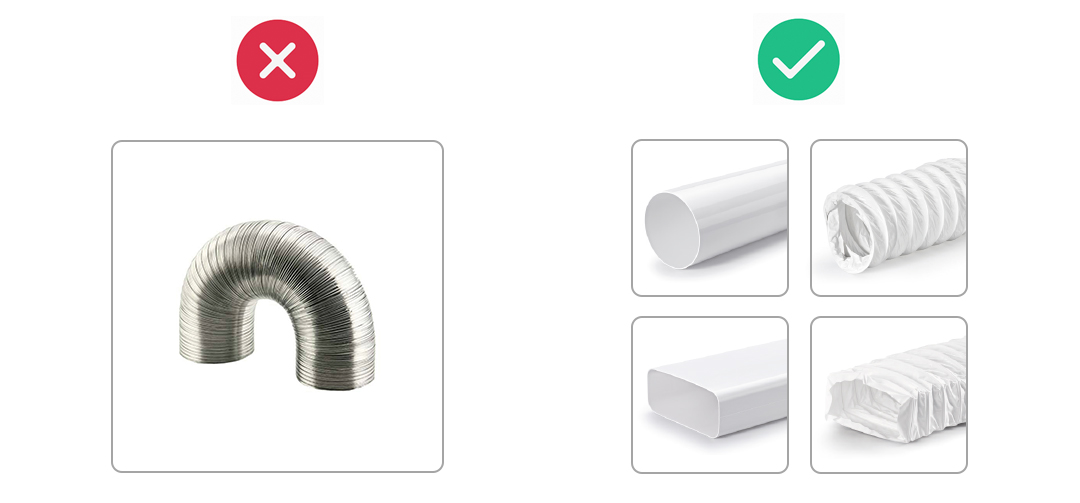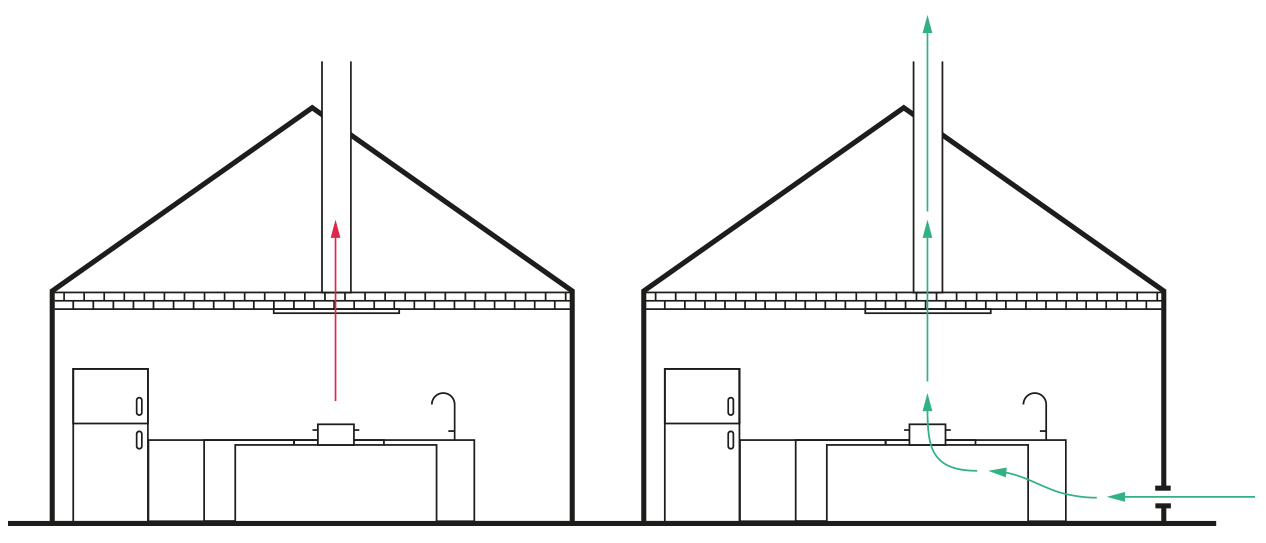Open Kitchen Trends: How Frecan’s Ceiling Hoods Perfectly Integrate Into This Design
 Cocina: Kokken Málaga | Frecan’s Ceiling Hood
Cocina: Kokken Málaga | Frecan’s Ceiling Hood
Open kitchens remain a top trend
Open kitchens have become a design standard in many modern homes. A unified space that integrates the kitchen, dining, and living room areas offers a sense of openness and connection. However, this design brings a key challenge: keeping the air clean and odor-free while cooking. This is where Frecan ceiling hoods shine, discreetly integrating and providing exceptional air extraction performance.
Frecan Ceiling Hoods: Efficiency and Discretion
Frecan ceiling hoods are the ideal solution for open kitchens, as their minimalist design blends into the ceiling without disrupting the view of the space. Beyond their aesthetics, it’s crucial to ensure that these hoods are installed correctly to maximize performance and guarantee optimal air extraction.
1. Installation Height and Proper Size for Optimal Extraction
The installation of a ceiling hood must consider two key factors: the distance from the cooking surface and the size of the hood relative to it.
Cooking vapors rise at an angle, expanding approximately 10 degrees as they ascend, meaning the greater the distance between the hood and the cooktop, the more area the fumes will cover. Therefore, it’s recommended that the hood be larger than the cooking surface.
• Ideal distance: For efficient extraction, ceiling hoods should be installed at a distance of 140 to 160 cm from the cooktop, capturing vapors before they disperse.
• Clearance: If the ceiling is not level, it’s essential to leave a clearance of at least 0.5 meters on each side of the hood to prevent fumes from bypassing the hood’s height, which would hinder extraction.
 By following these guidelines, you can optimize both extraction capacity and condensation reduction, ensuring a healthier kitchen environment.
By following these guidelines, you can optimize both extraction capacity and condensation reduction, ensuring a healthier kitchen environment.
2. Ensuring Good Ventilation: Ductwork and Airflow
A good ventilation system doesn’t depend solely on the power of the hood or external motor but also on the proper installation of the duct system. Here are some key points to ensure optimal extraction:
Quality, unobstructed ducts
• Suitable duct diameter: To avoid reduced efficiency, the duct should have a minimum diameter of 150 mm. Narrower ducts can create a bottleneck effect, decreasing the airflow.
• Duct types: Frecan offers a variety of rigid ducts to ensure proper airflow. Avoid using flexible metal ducts, as their rough interior surface increases grease buildup and fire risk. For short sections where a straight line is not possible, Frecan recommends flexible PVC fabric ducts, which maintain their shape and avoid airflow restrictions.
 • Avoid sharp turns: Ducts with 90-degree bends or long trajectories can reduce efficiency and increase noise. It’s best to keep ducts as direct as possible with smooth bends to prevent airflow blockages.
• Avoid sharp turns: Ducts with 90-degree bends or long trajectories can reduce efficiency and increase noise. It’s best to keep ducts as direct as possible with smooth bends to prevent airflow blockages.
Airflow Balance
When a hood extracts large volumes of air, it’s essential that the kitchen has a proper air intake to maintain pressure balance. Without this, the hood’s suction efficiency is reduced. Make sure the kitchen has an air inlet, particularly for gas installations. If not, one must be created.
Avoid External Air Currents
Finally, avoid uncontrolled air currents, such as those caused by open windows while cooking. These can disrupt the airflow towards the hood, reducing efficiency and allowing odors to spread.
3. Power and External Motor Options for Large Spaces
- n open kitchens, extraction power is key. Since odors and smoke disperse quickly, it’s essential to have a hood capable of refreshing the air at a high rate. To calculate the necessary power, multiply the total kitchen volume (height x width x length) by 10, which will give you the required extraction rate in m³/h.
In large open kitchens, a standard ceiling hood (about 1000 m³/h) may not be enough to keep the air clean. For these cases, Frecan offers a range of external motors that significantly increase extraction capacity, ensuring even large spaces are well ventilated.
For more information about our range of external motors, check out our dedicated post: Click here


Comentar